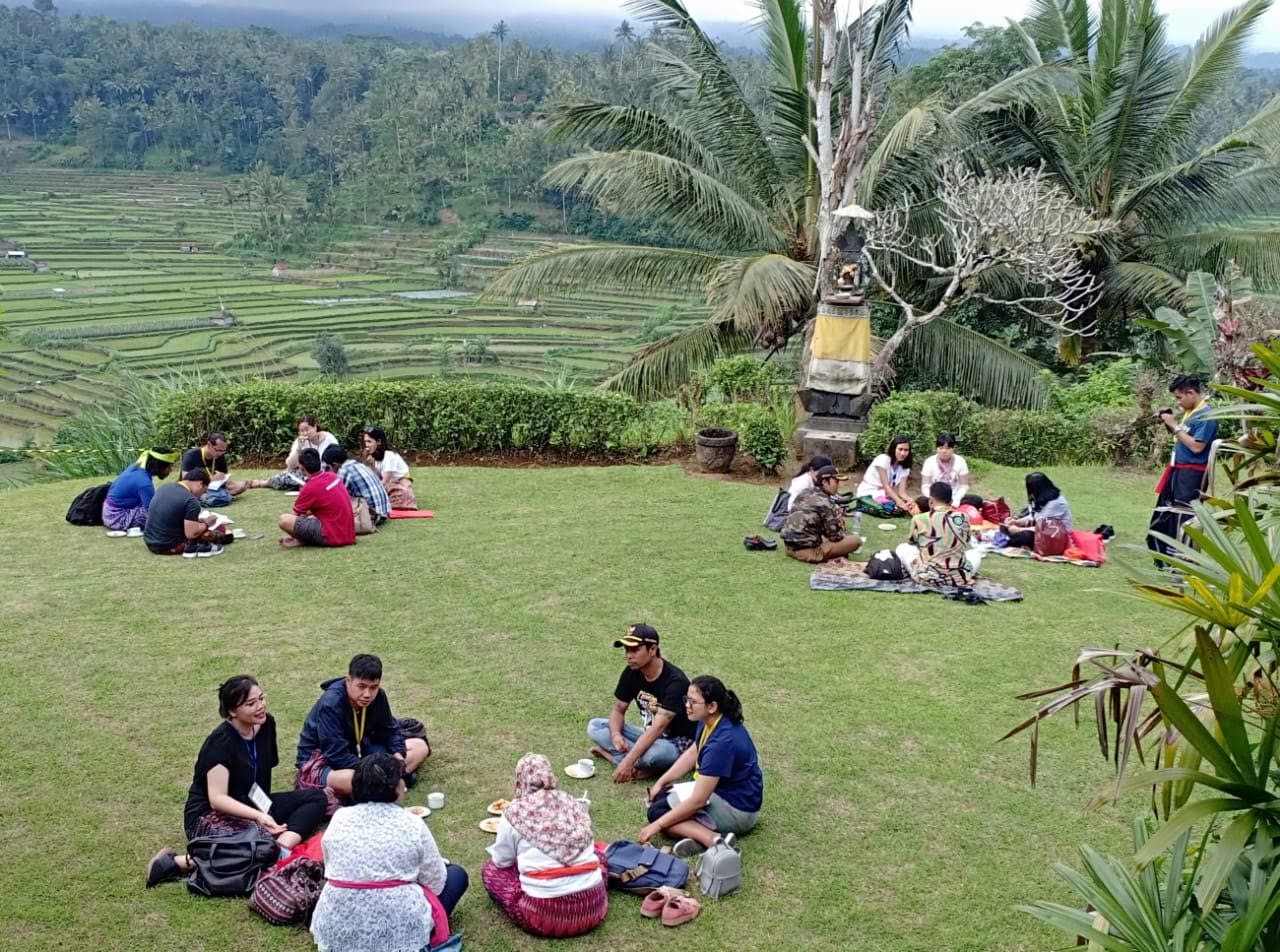Tri Hita Karana, a Spiritual Connection to Nature in Harmony
Main Article Content
Abstract
The Balinese ancestors showed how to live in harmony with their natural environment, and how their traditional wisdom can mitigate the risk of natural disaster and the degradation now known as climate change. Today, the concept of harmony in Balinese Hinduism is not a relic of the past but part of people’s daily activities that will be passed on to the next generation. To illustrate the relationship between cultural heritage and climate change, this paper discusses the Balinese philosophy of Tri Hita Karana which promotes harmony in multiple ways: harmony among human beings through communal cooperation and friendship; harmony towards God, manifested in numerous rituals and offerings to the creator; and harmony with nature, through efforts to conserve the environment and promote sustainability and balance. Tri Hita Karana guides many aspects of Balinese life, from daily rituals to economic activities. Currently, efforts are needed to harness this philosophy in this era of urban development.
Article Details
References
BPPI (The Indonesian Heritage Trust/Badan Pelestarian Pusaka Indonesia). 2015. Bali International Field School for Subak.
ICOMOS Indonesia, Minister of Culture and Tourism of Republic of Indonesia. 2003. Indonesian Charter for Heritage Conservation. Jakarta: The Indonesian Network for Heritage Conservation.
Kubontubuh, Catrini. 2021. Conceptual Model of Non-Intach Heritage Conservation, doctoral program, Architecture Department of School Planing Architecture and Policy Development (SAPPK), Institut Teknologi Bandung.
Lowenthal, D. 2009. “Fabricating Heritage.” History and Memory, 10: 5–24.
Rukmi, W. I. 2015. “Nobility Space, Spatial Movement Construction in the Centre of Majapahit Site, Trowulan.” Dissertation, University of Gadjah Mada, Yogyakarta.
Smith, Laurajane and Natsuko Akagawa. 2009. Intangible Heritage. London: Routledge.
UN (United Nations). 2020. “What is Climate Change?” https://www.un.org/en/climatechange/what-is-climate-change


